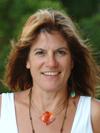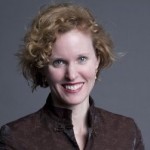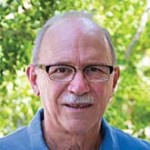Aired on April 24, 2015 – This is the first webinar in the “Along the Urban Path” four-part webinar series, a collaborative effort between Arizona State University and The Security and Sustainability Forum. Along the Urban Path is a practical primer on the burgeoning topic of urban resiliency. Attendees will take home points that go beyond the vernacular to get to what “resiliency” actually means now, and what it could achieve for the future.
Presenters representing different disciplines take participants down different avenues using three resilience mechanisms — social, ecological, and technological – and where these avenues converge. The result is a workable framework using S.E.T.S. (Social, Ecological, Technological Systems) that decision makers can use in planning for a more sustainable future. In this first webinar, Panelists introduce attendees to “urban resilience,” including insights from the practitioner perspective.
For your convenience, you can find the slide presentation for the webinar here.
The Panel:

Moderator: Dr. Nancy B. Grimm studies the interaction of climate variation and change, human activities, and ecosystems. She is Professor of Ecology in the School of Life Sciences and a Senior Sustainability Scientist in the Julie Ann Wrigley Global Institute of Sustainability. Her interdisciplinary research in both urban and stream ecosystems has focused on disturbance, resilience, and biogeochemical processes. Since 1997, Grimm has directed the Central Arizona–Phoenix Long-Term Ecological Research program, an interdisciplinary study of the Phoenix metropolitan region, with pioneering studies of urban social-ecological systems that conceptually expanded ecology. Grimm has been President of the Ecological Society of America and is a Fellow of the American.
Association for the Advancement of Science and of the Ecological Society of America. She is an editor for Earth’s Future, a past program director for the National Science Foundation and senior scientist for the U.S. Global Change Research Program, author or co-author of ~170 scientific publications, and a lead author for two chapters of the U.S. National Climate Assessment.

Joyce Coffee, LEED AP, is managing director of the Notre Dame Global Adaptation Index for global resilience, which promotes adaptation by identifying the places most vulnerable to extreme weather and changing climate and identifying real-world solutions that can prevent these changes from becoming disasters. Previously, she directed the City of Chicago’s Climate Action Plan, driving climate mitigation and adaptation efforts, and managed water and air resources in the City of Chicago Department of Environment. Coffee started her career in Asia with the World Bank and U.S. Agency for International Development’s U.S.-Asia Environmental Partnership.

Dr. Tom Seager leads a project funded by the National Science Foundation that applies game theory to develop new strategies for teaching ethical reasoning skills relevant to sustainability to science and engineering graduate students. This project interprets sustainability primarily as an ethical concept, and places students in noncooperative game situations that confront the salient problems of sustainability, such as intergenerational equity and weak vs. strong formulations of the sustainability concept. Dr. Seager also conducts research related to environmental decision analysis, and the life-cycle environmental impacts of alternative energy technologies. He joined the School of Sustainable Engineering and the Built Environment at Arizona State University in 2010.

Dr. Charles Redman joined Arizona State University in 1983 where he served as Chair of the Department of Anthropology, Director of the Center for Environmental Studies and, in 2004, was chosen to be the Julie Ann Wrigley Director of the newly formed Global Institute of Sustainability. From 2007-2010, Redman was the founding director of ASU’s School of Sustainability. Redman’s interests include human impacts on the environment, sustainable landscapes, rapidly urbanizing regions, urban ecology, environmental education, and public outreach. Redman is currently working on building upon the extensive research portfolio of the Julie Ann Wrigley Global Institute of Sustainability and teaching in the School of Sustainability, which is educating a new generation of leaders through collaborative learning, transdisciplinary approaches, and problem-oriented training to address the environmental, economic, and social challenges of the 21st Century.
Thank you to our sponsors, Arizona State University, Notre Dame-GAIN, Second Nature, and the National Council for Science and the Environment, for making this event possible and free to attend!As with all SFF webinars, there will be time after the panelist presentations for audience questions, and the webinars will be recorded and available in the Archives onwww.ssfonling.org. Attendees, curious minds, practitioners, and the general public are invited to dialogue about the webinars and the topic of “urban resilience” before and after the four live events on the Security & Sustainability Forum LinkedIn Group page at linkedin.com/groups/Security-Sustainability-Forum-8236511 in the designated conversation thread.
